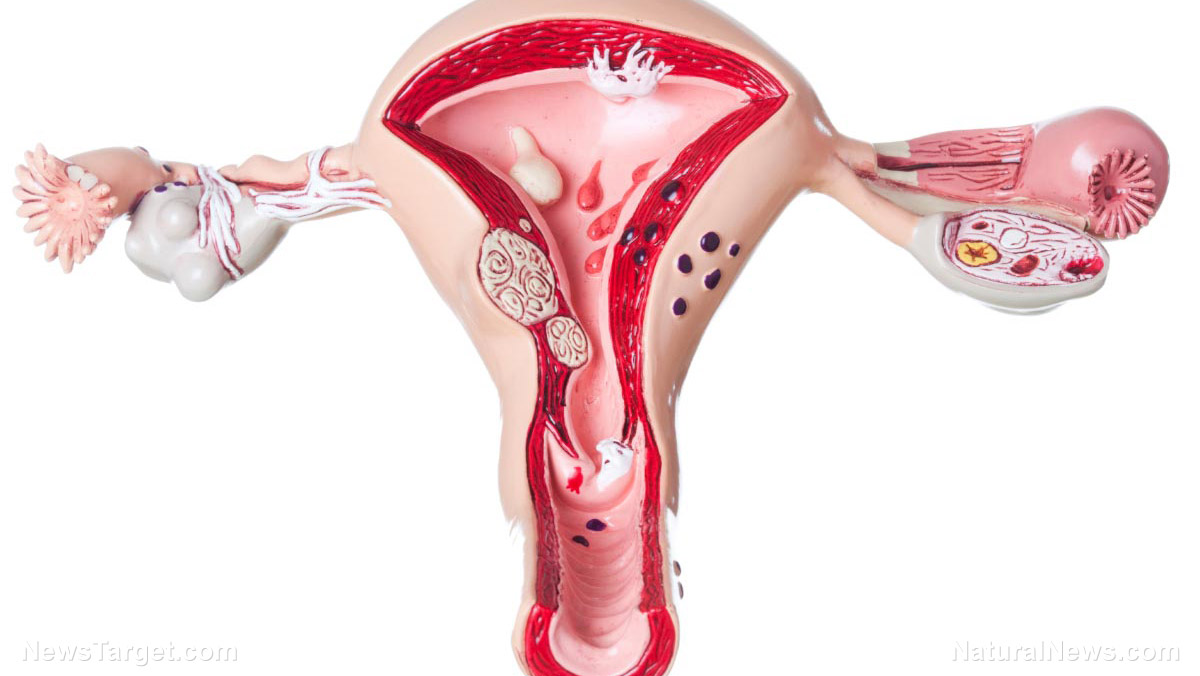Desert ginseng found to protect against premature ovarian failure in menopausal women, usually caused by medical treatment
11/13/2018 / By Rita Winters

Menopause is a natural event in the life of a woman in which the reproductive system starts to “shut down,” when the menstruation cycle ceases. Because of the side effects that come with menopause, treatments such as hormone therapy have been created (but they also come with side effects). Likewise, premature ovarian failure (POF) has similar side effects. POF is often caused by chemotherapy treatment (such as with cisplatin).
Now a study published in the African Journal of Traditional, Complementary and Alternative Medicines found that a desert plant can help protect the ovaries from cisplatin-induced cell death (apoptosis) with few, if any, side effects.
Premature ovarian failure (POF) is a disease that causes premature menopause or the cessation of ovarian function before the median age of 40. Undergoing chemotherapeutic treatment hastens the onset of menopause during a woman’s reproductive years, and therefore affects fertility. Cisplatin, a chemical used in chemotherapy, has been found to disrupt estrous cyclicity in mice and rats, reduce ovarian weight, and cause ovarian cell apoptosis.
Researchers from the Liaoning University of Traditional Medicine administered low and high concentrations of Cistanches herba – a parasitic plant that is indigenous to North Africa and Asian countries – to cisplatin-induced POF mice were for two weeks. The cisplatin-induced POF mice had lower body weights and ovarian weights, elevated levels of serum follicle-stimulating hormones, unnaturally thin or attenuated estradiol concentrations, and apoptosis of ovarian granulosa.
The findings showed that C. herba has protective mechanisms, and reversed the functional and morphologic injuries, ovarian tissue apoptosis, and reduced the cisplatin-induced mitochondrial dysfunction in the tissues of the ovaries.
C. herba has been used by the Chinese people as a traditional medicine for chronic renal diseases, impotence, female infertility, morbid leucorrhea, profuse metrorrhagia, and senile constipation. The scientific analysis of C. herba found that is has anti-aging properties, improves learning and memorization abilities, treats symptoms of neurodegenerative disorders such as Alzheimer’s disease, and enhances the immune system. C. herba is now also linked with the regulation of reproductive function, increasing sex hormone levels and up-regulating gene expression of 3-beta-hydroxysteroid dehydrogenase (responsible for the synthesis of dihydrotestosterone). This plant was also shown to improve ovarian weight and the expression of estrogen and progesterone receptors in rats in a Chinese study from 20 years ago. While this plant exhibits many beneficial properties, its exact regulating mechanisms are still unknown.
Premature ovarian failure, or POF, is a disorder in which a woman’s ovaries stop working prior to menopause. Women who have POF experience hot flashes, night sweats, irritability, poor concentration, decreased sex drive, pain during sex, and vaginal dryness – all the same symptoms of menopause. As compared to menopause, however, women with POF still have occasional periods.
Because of menopause’s many side effects, treatments have been engineered to provide relief for women. These treatments include hormone therapy, vaginal estrogen, low-dose antidepressants, Gabapentin, Clonidine, and medications preventing osteoporosis. However, these treatments come with side effects that only risk a woman’s health more. C. herba works wonders against the effects of chemotherapy on women, but it may also prove useful in the management of pre-menopause and menopausal symptoms. Furthermore, it may prevent premature ovarian failure entirely, even without cisplatin inducing it. (Related: 11 Herbs for Perimenopause and Menopause Symptom Relief.)
Traditional Chinese medicines are now slowly being accepted by the western world, because these natural remedies for ailments prove effective and safe.
Sources include:
Tagged Under: alternative medicine, apoptosis, cisplatin, Cistanches herba, desert ginseng, herbal medicine, menopausal symptoms, Menopause, natural cures, POF, premature ovarian failure, TCM, traditional Chinese medicine, women's health



















